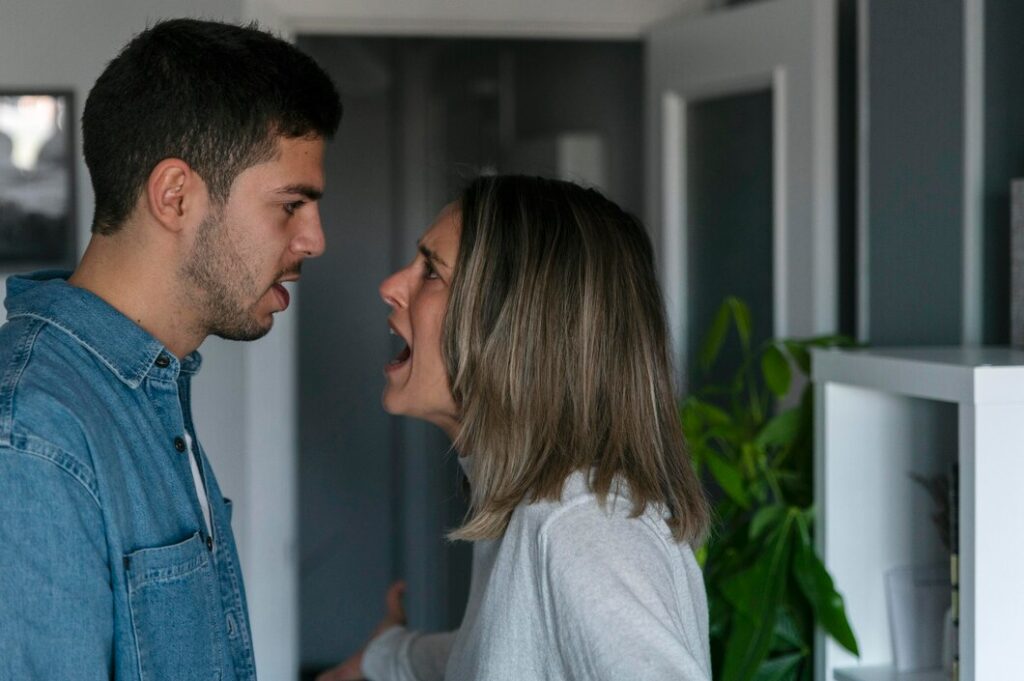How to Handle Abusive Relationships: 10 Safety Tips You Need to Know

A relationship is a very valuable aspect of our life. It must be unique and something to be enjoyed by everyone. We all dream of having a very healthy relationship, especially with our friends, family members, and loved ones.
It is a relationship wherein we enjoy each other’s company. We do things together like watching a basketball game or sometimes hanging out with the company of some friends. We are honest about our feelings with each other. There is mutual respect and sincerity between the two of us. It means we pay attention to each other’s opinions or thoughts, always trying to reach out to each other to strengthen the bonds of the relationship.
A healthy relationship doesn’t necessarily mean perfection. It’s about finding balance and joy in the little things you share with your partner. Maybe you both enjoy binge-watching your favorite shows or going on spontaneous weekend trips. These moments, as simple as they are, form the foundation of trust and closeness. In healthy relationships, there’s space for growth and understanding.
Both partners value each other’s happiness, compromising when needed but without losing themselves in the process. Communication becomes a key tool. It’s about listening when your partner speaks and expressing yourself when it matters. Both of you become each other’s emotional support system, knowing when to lift one another and when to give space.
Characteristics of a Healthy Relationship
A healthy relationship is built on:
- Trust: Trust is the glue that holds everything together. It’s about having confidence in your partner’s actions and decisions. Without trust, doubts and suspicions creep in, damaging the bond.
- Honesty: Being open and honest about your feelings and thoughts is crucial. When both partners are honest, misunderstandings can be avoided, and the relationship becomes stronger.
- Respect: Mutual respect is non-negotiable. Both partners should respect each other’s feelings, boundaries, and opinions. Without respect, the relationship quickly turns toxic.
- Support: A healthy relationship is about supporting each other through life’s ups and downs. It’s knowing that someone always has your back.
- Effort: Relationships don’t run on autopilot. They require continuous effort from both parties. Whether it’s through small acts of love or big gestures, effort keeps the spark alive.
- Communication: Talking openly about issues, sharing dreams, and even having deep conversations strengthens the emotional connection. Clear communication helps to avoid conflicts.
On the other hand, to have an unhealthy or abusive relationship is to experience the exact opposite of when we are in a healthy relationship.
We usually feel bad about ourselves. We do not verbalize our feelings. We take each other for granted. It could be in the form of hurting the other person verbally, abusing the person physically, emotional abuse, and sexual abuse. Sometimes, both people will be violent or abusive to each other.

Characteristics of an Unhealthy Relationship
In an abusive or unhealthy relationship, there is:
- Lack of Communication: Partners stop discussing their feelings, opinions, or concerns. This lack of communication often leads to misunderstandings and resentment.
- Disrespect: One or both partners stop respecting the other’s boundaries, leading to toxic behaviors like constant criticism, belittling, or neglect.
- Control Issues: In unhealthy relationships, one partner may try to control or manipulate the other, leading to a toxic power dynamic.
- Jealousy and Possessiveness: Trust issues often lead to one partner becoming overly possessive, constantly accusing the other of cheating or lying.
- Physical or Emotional Abuse: Abuse can take many forms – it could be physical, emotional, or verbal. Any form of abuse is unacceptable and extremely harmful to the individuals involved.
- Neglect: One partner may neglect the emotional and physical needs of the other, leading to a breakdown in the relationship.
- Fear: If you feel fearful of your partner or what they might say or do, it’s a clear sign that the relationship is unhealthy.
In abusive relationships, one person might continuously use fear or violence to maintain control. This control can be physical, like hitting or pushing, but it can also be emotional manipulation. Emotional abuse includes guilt-tripping, gaslighting, or making the other person feel worthless. Sometimes, the person doing the abusing might not even realize what they’re doing, but that doesn’t make it any less dangerous or hurtful.
Abusive relationships don’t always start out as such. They might begin like any other, with excitement, affection, and love. But over time, signs of abuse can slowly start showing up. Jealousy, control, manipulation, and even small insults can be early warning signs. It’s critical to recognize these behaviors early before they escalate.
How to Recognize an Abusive Relationship
- Constant Criticism: If your partner frequently belittles you, criticizes your looks, intelligence, or capabilities, this is emotional abuse.
- Isolation: Abusers often try to isolate their victims from friends and family to control them better. If your partner discourages you from seeing loved ones or always wants to know where you are, take this as a red flag.
- Blame: Abusers often refuse to take responsibility for their actions, instead placing the blame on their victim. They might say things like, “You made me do this,” or “It’s your fault I’m upset.”
- Fear: You find yourself walking on eggshells, constantly worrying about how your partner will react. If you are living in fear of your partner’s temper, this is a sign of an abusive relationship.
- Physical Violence: Any form of physical harm, from slapping to hitting, is never okay.
- Manipulation: An abuser may manipulate you emotionally, making you feel guilty for their actions or convincing you that you’re the one causing the problems.
How to Leave an Abusive Relationship
If we are experiencing an abusive relationship, then how are we to get out of such a relationship?
First and foremost, we need to talk to somebody we can trust, like for example, our parents, a friend, guardian, counselor, teacher, or doctor. We should relate to them that we are having an unhealthy relationship and what the other person did to abuse us.
If we are afraid to tell our parents, then we should approach somebody we trust to help us in telling our parents, a counselor, the security of the school, or even the police about the abuse. And we will be able to escape such a relationship.
In leaving an abusive relationship, sometimes it is too risky to do so. There is a necessity for us to make a plan for our safety so that everything will be done smoothly. It will surely not be difficult and safer if we have a plan.
Safety Tips for Leaving an Abusive Relationship:
- Do not be ashamed to tell your situation to somebody you trust.
- Mention directly to the person abusing you that you do not want to see him or her. Do this when your guardian or parents are present.
- If you are injured, seek treatment from your doctor or the hospital.
- Record in a diary the dates and details of each abusive incident. This can be used later as evidence if necessary.
- Avoid contact with the person whenever possible. Distance is key.
- Don’t walk alone. Always have a friend or family member with you in public places.
- In case of emergency, head to a safe place, like a police station.
- Always carry your cellphone, phone cards, and money for emergencies.
- If the person follows you or continues to harass you, don’t hesitate to call 911.
- Keep domestic violence hotline numbers handy for immediate help.
Most of the time, it would happen that the various abuses we mentioned are done inside our very own home. We feel bad about this kind of situation. In other words, our home can no longer guarantee our safety and security with the other members of the family. Sexual abuse is committed right at the doorstep of our home. Child abuse is also done when a person assigned to take care of the child fails to do so.
There are times when the child is physically hurt out of jealousy. Whatever happens, the parents and health caregivers must be prepared to protect and take care of the child.
The Importance of Support Systems in Abusive Relationships
Getting out of an abusive relationship can be tough, but it’s much harder to do alone. A strong support system makes all the difference. Whether it’s family, friends, or professionals like counselors or law enforcement, it’s important to surround yourself with people who can help you.
Talking to a trusted person can lift some of the burden off your shoulders. Having a conversation is the first step towards freedom. They can offer practical advice, emotional support, and even physical help if you need it.
Seeking Professional Help
In some cases, professional help may be necessary to fully heal from the trauma of an abusive relationship. Therapists or counselors can help you regain your sense of self-worth and navigate the emotional scars left behind. Support groups can also provide a safe space where you can share your experiences with others who understand what you’ve been through.
By understanding the dynamics of both healthy and abusive relationships, we can make more informed choices in our lives. **We all deserve to be loved, respected, and valued.





